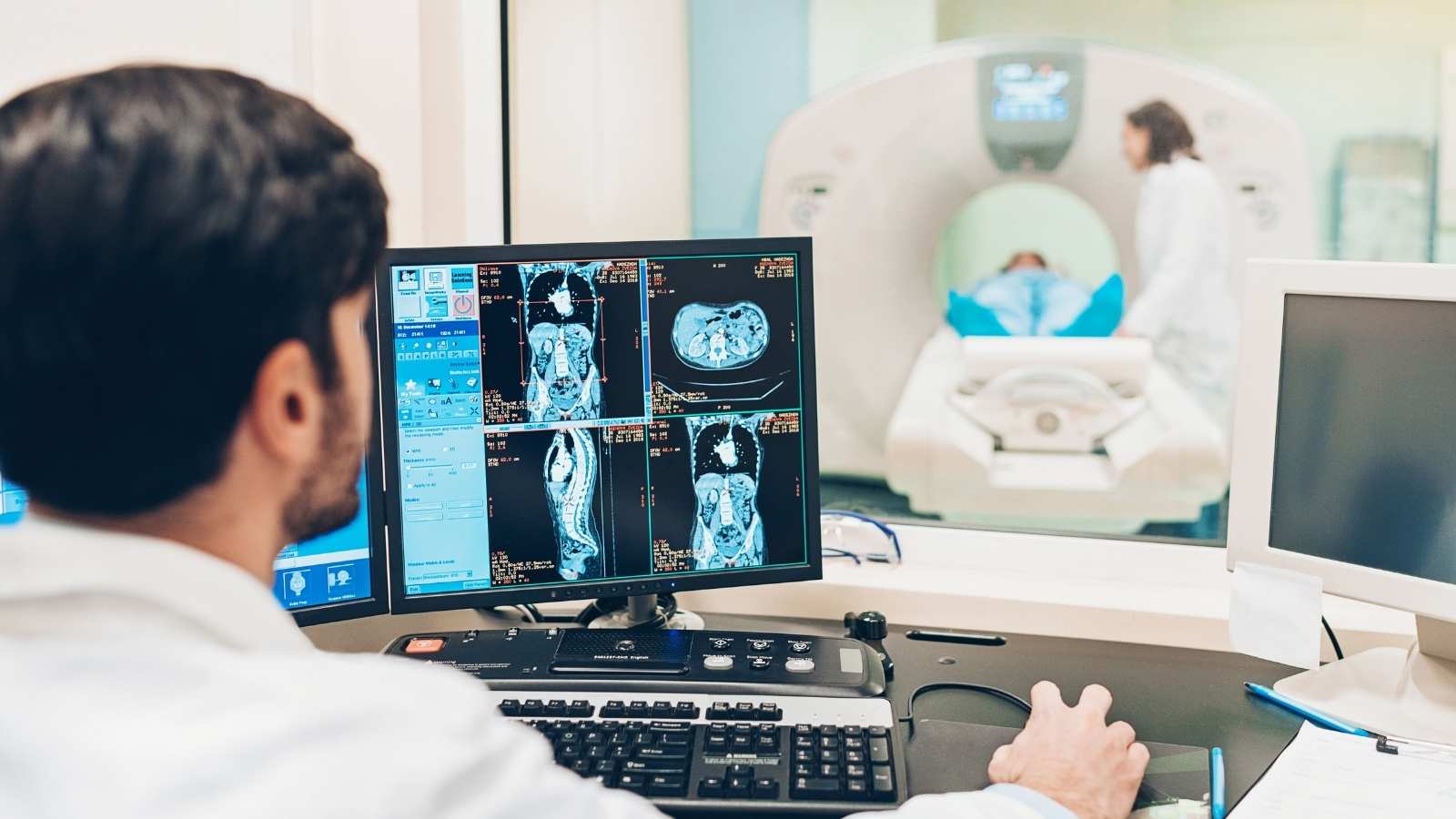
Cardiac MRI is a non-invasive imaging technique used for diagnosing and monitoring heart diseases. Through cardiac magnetic resonance imaging (MRI), the structure, functions, and blood vessels of the heart can be visualized in detail. This method holds an essential place in modern medicine, particularly for the accurate diagnosis of heart diseases and the formulation of treatment plans.
Magnetic resonance imaging (MRI) technology uses a powerful magnetic field and radio waves to create precise images of the internal structures of the body. Cardiac MRI provides important information, such as the detailed observation of all parts of the heart and surrounding vessels, blood flow, heart muscle movements, and heart wall examination. This test provides in-depth information that is often not available through other imaging methods, helping doctors make more accurate diagnoses.
What Diseases is Cardiac MRI Used For?
Cardiac MRI is used in the diagnosis and treatment of various heart diseases. Some of the conditions it can assess include:
- Cardiomyopathy: When the heart muscle weakens or enlarges abnormally, cardiac MRI is used to evaluate the condition and function of the heart muscle.
- Coronary Artery Disease and Heart Attack: Cardiac MRI is crucial for monitoring the status of coronary arteries and detecting patients at risk of a heart attack. This imaging method can show the narrowing and blockages of coronary arteries.
- Heart Valve Diseases: Issues with heart valves can directly affect heart function. Cardiac MRI can clearly visualize valve abnormalities.
- Congenital Heart Diseases: Cardiac MRI can detect congenital heart diseases, allowing detailed imaging of abnormalities in the heart chambers, valves, and blood vessels.
- Pericarditis: Inflammation of the pericardium, the membrane surrounding the heart, can be effectively visualized with cardiac MRI, showing inflammation and fluid accumulation.
- Heart Failure: In heart failure, the heart is unable to pump enough blood to the body. Cardiac MRI helps identify the causes of heart failure, examine the effects of pericardial diseases on heart function, and guide treatment by analyzing affected areas.
In addition to these conditions, cardiac MRI is also used to monitor the overall health of the heart, particularly during the recovery process after treatment, to evaluate the response to therapy.
Is There Any Preparation for Cardiac MRI?
There is no special preparation process for a cardiac MRI scan. However, you will be asked to avoid eating or drinking before your appointment and to provide information about any medications you are taking. Additionally, due to the strong magnetic field of the MRI machine, you will need to remove any metal items (jewelry, watches, credit cards) before entering the scan room.
How Long Does a Cardiac MRI Take?
Cardiac MRI typically takes between 30 minutes to 1 hour. However, in more complex cases that require more detailed imaging or additional tests, the procedure may take longer. During the scan, the patient must remain still, as movement can affect the clarity of the images. Therefore, it is important to inform patients beforehand to ensure they are comfortable and aware of the need to stay still during the procedure.
In conclusion, cardiac MRI is a powerful tool for monitoring heart health and ensuring the accurate diagnosis of heart diseases. The detailed and reliable information provided by this method aids in guiding the treatment process and helps doctors make more informed decisions.